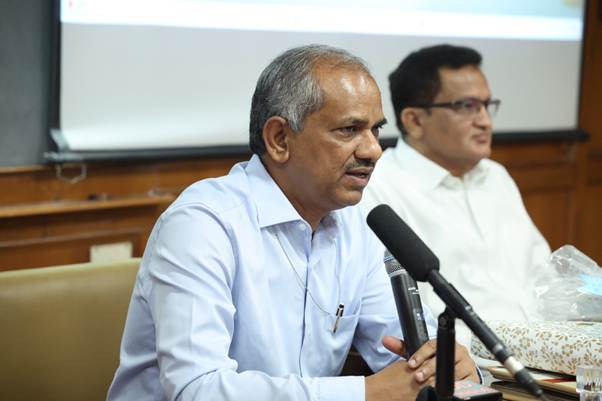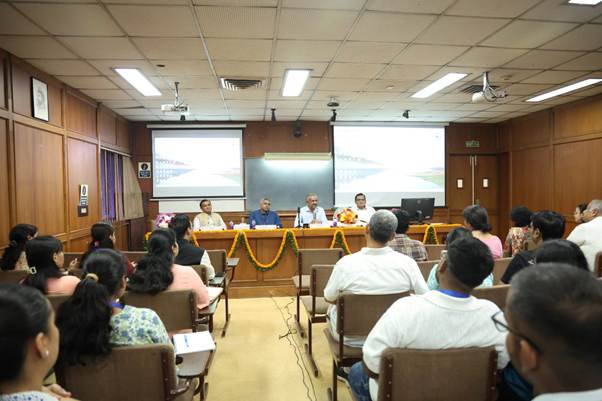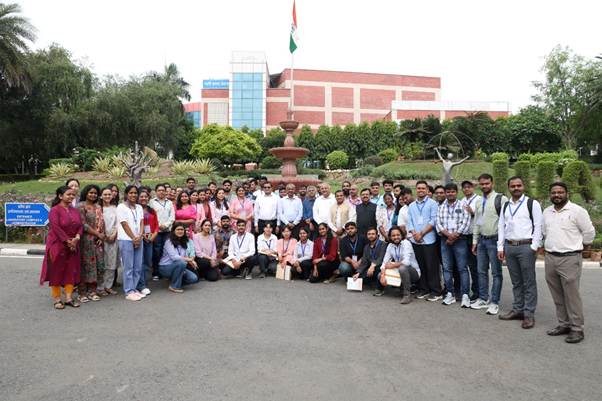Secretary, MoES, Dr. M. Ravichandran inaugurated ‘School on Geochronology Techniques – 2025’ at IUAC, New Delhi
Secretary, MoES, Dr. M. Ravichandran inaugurated ‘School on Geochronology Techniques – 2025’ at IUAC, New Delhi
Secretary, Ministry of Earth Sciences (MoES), Dr. M. Ravichandran today inaugurated the School on Geochronology Techniques – 2025. In his inaugural address, Dr. Ravichandran urged the young researchers participating in the training school to strengthen their technical capabilities in sample preparation and modern instrumentation, but to also look beyond data generation towards meaningful scientific interpretation. He emphasised that the future of Earth sciences in India must align with national developmental goals, including the vision of Viksit Bharat 2047. In this context, he called for greater self-reliance through the use of indigenous facilities, methods, and datasets, while also encouraging collaboration and peer learning to expand the national knowledge base.
Dr. Ravichandran further emphasised the multiplier effect of training schools, stating that young researchers should act as teachers and disseminate their learnings across their institutions, thereby strengthening the national knowledge base. He reassured that the Ministry of Earth Sciences would continue to support initiatives that advance geochronology and related fields, positioning India as a key contributor to global Earth science research.
He underscored that geochronology has emerged as a critical discipline for understanding Earth’s history, mapping natural resources, and responding to environmental challenges, including climate change and natural hazards.
Dr. M. Ravichandran referred to studies conducted on Antarctica to illustrate the central role of geochronology in revealing past environmental and climatic processes. He observed that such studies enable scientists to link long-term geological changes with contemporary challenges such as natural hazards, resource management and climate resilience.
Dr. N. Khare, Advisor & Programme Head, SAGE, MoES, speaking at the event, appreciated the unique role of IUC in not only providing advanced analytical facilities but also imparting hands-on training to young researchers. He recalled the Ministry’s vision, dating back to the first plan period, of establishing national facilities in geotechnology and geochronology, noting that the latter has flourished under IUC’s stewardship. Highlighting that over 9,000 samples have already been analysed through AMS dating and other instruments, Dr. Khare said the facility has become a cornerstone for understanding Earth’s dynamics, continental evolution, and applied aspects of geosciences.
Secretary also underlined the importance of equity, equality, diversity and inclusion in shaping India’s scientific journey. He noted that these values are essential for ensuring that the benefits of geoscience research reach all sections of society. He encouraged the young participants to remain in close touch with IUAC and the Ministry of Earth Sciences, assuring them of continued support in their academic and professional pursuits.
The inaugural session was also addressed by Prof. A.C. Pandey, Director, IUAC; Dr. Pankaj Kumar, IUAC; and Ms. Chaitiya Aswal, IUAC. Faculty, scientists, and young researchers from across India are participating in the week-long training programme.


